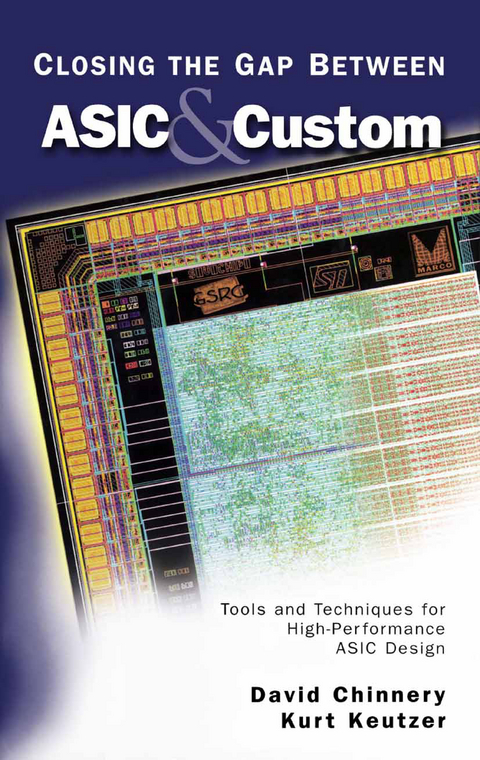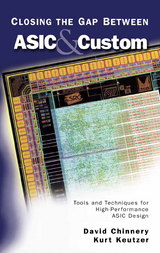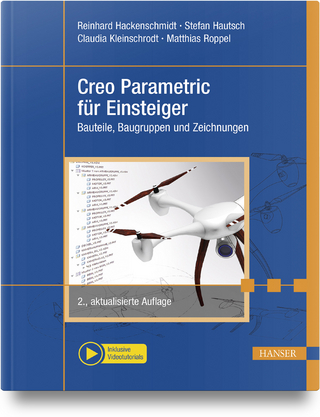Closing the Gap Between ASIC & Custom
Kluwer Academic Publishers (Verlag)
978-1-4020-7113-3 (ISBN)
and Overview of the Book.- Contributing Factors.- Improving Performance through Microarchitecture.- Reducing the Timing Overhead.- High-Speed Logic, Circuits, Libraries and Layout.- Finding Peak Performance in a Process.- Design Techniques.- Physical Prototyping Plans for High Performance.- Automatic Replacement of Flip-Flops by Latches in ASICs.- Useful-Skew Clock Synthesis Boosts ASIC Performance.- Faster and Lower Power Cell-Based Designs with Transistor-Level Cell Sizing.- Design Optimization with Automated Flex-Cell Creation.- Exploiting Structure and Managing Wires to Increase Density and Performance.- Semi-Custom Methods in a High-Performance Microprocessor Design.- Controlling Uncertainty in High Frequency Designs.- Increasing Circuit Performance through Statistical Design Techniques.- Design Examples.- Achieving 550MHz in a Standard Cell ASIC Methodology.- The iCORE™ 520MHz Synthesizable CPU Core.- Creating Synthesizable ARM Processors with Near Custom Performance.
| Zusatzinfo | XV, 414 p. |
|---|---|
| Sprache | englisch |
| Maße | 155 x 235 mm |
| Themenwelt | Mathematik / Informatik ► Informatik ► Theorie / Studium |
| Informatik ► Weitere Themen ► CAD-Programme | |
| Technik ► Elektrotechnik / Energietechnik | |
| ISBN-10 | 1-4020-7113-2 / 1402071132 |
| ISBN-13 | 978-1-4020-7113-3 / 9781402071133 |
| Zustand | Neuware |
| Informationen gemäß Produktsicherheitsverordnung (GPSR) | |
| Haben Sie eine Frage zum Produkt? |
aus dem Bereich




